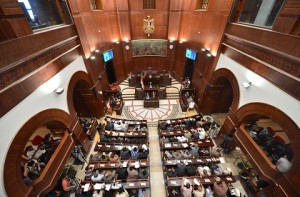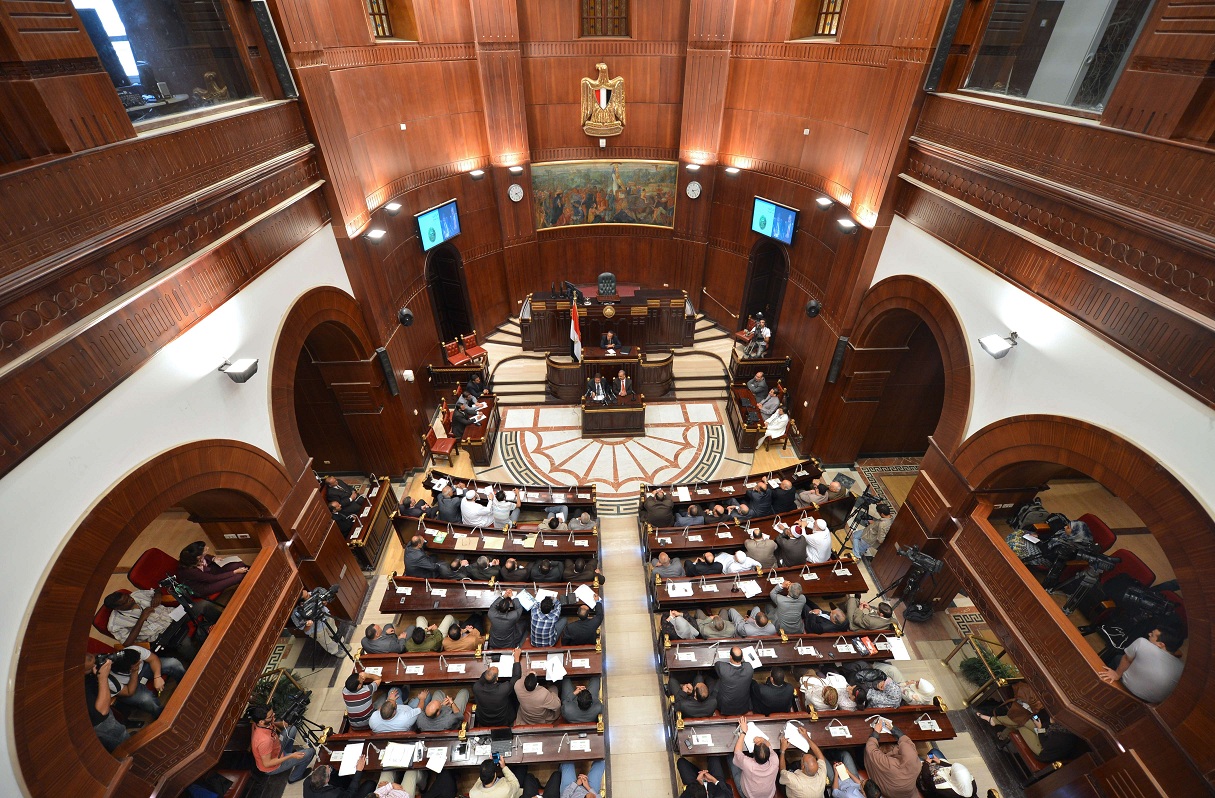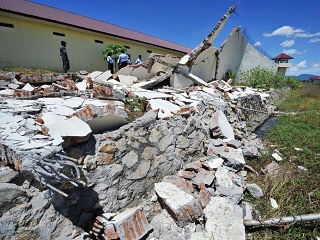
(AFP Photo)
The proposed witness protection law lacks important details and includes loopholes, a report published on Saturday concluded.
The law was proposed by the Ministry of Justice and referred to the Shura Council for discussion.
A report released by the Egyptian Initiative for Personal Rights (EIPR), the Cairo Institute for Human Rights Studies, and Al-Karama Organisation for Human Rights criticised the draft law, expressing fear it was only drafted to fulfil Egypt’s responsibility towards the United Nations’ Convention against Corruption, which Egypt signed and ratified.
“The draft law doesn’t meet the minimum requirements to fulfill Egypt’s international responsibilities,” the report read. “It fails to reflect a true and sincere political will to fight corruption by encouraging and protecting witnesses.”
The report criticised the law’s failure at providing a detailed definition of “witnesses” or a definition of the type of crimes which necessitate witnesses’ protection, also falling short in protecting the witness’s relatives from prospective threats.
The draft law protects the witness’s first and second degree relatives. The organisations stated that countries such as Kenya, the Czech Republic and Canada widen the circle of protected relatives to include those who might not even be biologically-related to the witness. They added that such precautionary measures should be adopted in a country where corruption is as widespread as it is in Egypt.
The absence of any means of implementing the law was also criticised by the human rights organisations. They stated that the sources and amounts of funding that the witness protection programme is to receive must be clearly outlined to make its implementation more feasible. The report cited the example of Croatia, where a finely-drafted witness protection law ended up in failure due to the gap between its theoretical and practical aspects.
The organisations also condemned enlisting the witness protection administration under the auspices of the Ministry of Interior. Given the Ministry of Interior’s negative involvement in several disputes, especially those regarding cases of torture, the organisations argued that the ministry should be left out of the witness protection programme. They suggested enlisting the program’s administration under the judicial authority or the public prosecution as is the case in several other states such as Columbia, the Netherlands and the United States.
Another matter the report tackled in detail was the importance of giving witnesses an incentive to testify. The organisations highlighted Article 9 of the proposed law, which states that if it was proven that the protected witness lied about his testimony, he would face time in prison. They argued that such a punishment would encourage witnesses to shy away from testifying, adding that witnesses subject to serious threats usually do not have all the facts regarding the case, which makes their testimony more likely to be flawed.
The organisations stated that the draft law failed to ban media coverage of any information which reveals the identity of the witnesses under the protection programme, a matter which puts them in danger.
The draft law provides only witnesses testifying in court with protection, a matter which the organisations condemned, stating that witnesses testifying in other judiciary institutions deserve similar protection.
They also stated that the law should offer protection to witnesses testifying in any penal lawsuit and not just criminal lawsuits as the current draft of the law states. Criminal lawsuits do not include disciplinary lawsuits; the report clarified that most corruption cases fall under disciplinary lawsuits.
“We urge the legislative authorities to take their time in issuing this law,” the report read. It called for a public discussion regarding the bill before being approved.
The Shura Council approved the draft law in principle on Sunday. In May, Minister of Justice Ahmed Suleiman chaired the first meeting of the National Coordination Committee for Combating Corruption to discuss the draft law which was proposed by his ministry.


